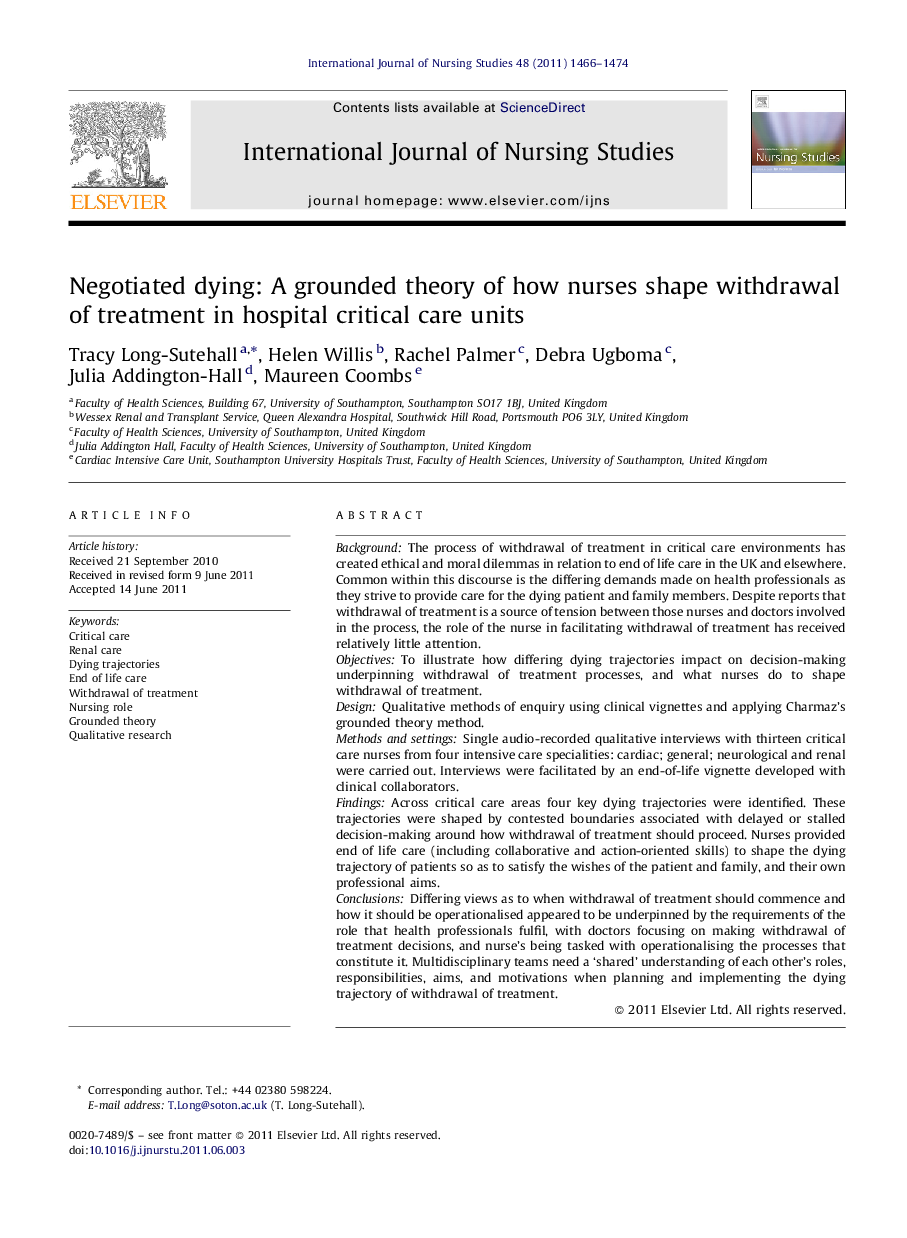| Article ID | Journal | Published Year | Pages | File Type |
|---|---|---|---|---|
| 1076631 | International Journal of Nursing Studies | 2011 | 9 Pages |
BackgroundThe process of withdrawal of treatment in critical care environments has created ethical and moral dilemmas in relation to end of life care in the UK and elsewhere. Common within this discourse is the differing demands made on health professionals as they strive to provide care for the dying patient and family members. Despite reports that withdrawal of treatment is a source of tension between those nurses and doctors involved in the process, the role of the nurse in facilitating withdrawal of treatment has received relatively little attention.ObjectivesTo illustrate how differing dying trajectories impact on decision-making underpinning withdrawal of treatment processes, and what nurses do to shape withdrawal of treatment.DesignQualitative methods of enquiry using clinical vignettes and applying Charmaz's grounded theory method.Methods and settingsSingle audio-recorded qualitative interviews with thirteen critical care nurses from four intensive care specialities: cardiac; general; neurological and renal were carried out. Interviews were facilitated by an end-of-life vignette developed with clinical collaborators.FindingsAcross critical care areas four key dying trajectories were identified. These trajectories were shaped by contested boundaries associated with delayed or stalled decision-making around how withdrawal of treatment should proceed. Nurses provided end of life care (including collaborative and action-oriented skills) to shape the dying trajectory of patients so as to satisfy the wishes of the patient and family, and their own professional aims.ConclusionsDiffering views as to when withdrawal of treatment should commence and how it should be operationalised appeared to be underpinned by the requirements of the role that health professionals fulfil, with doctors focusing on making withdrawal of treatment decisions, and nurse's being tasked with operationalising the processes that constitute it. Multidisciplinary teams need a ‘shared’ understanding of each other's roles, responsibilities, aims, and motivations when planning and implementing the dying trajectory of withdrawal of treatment.
